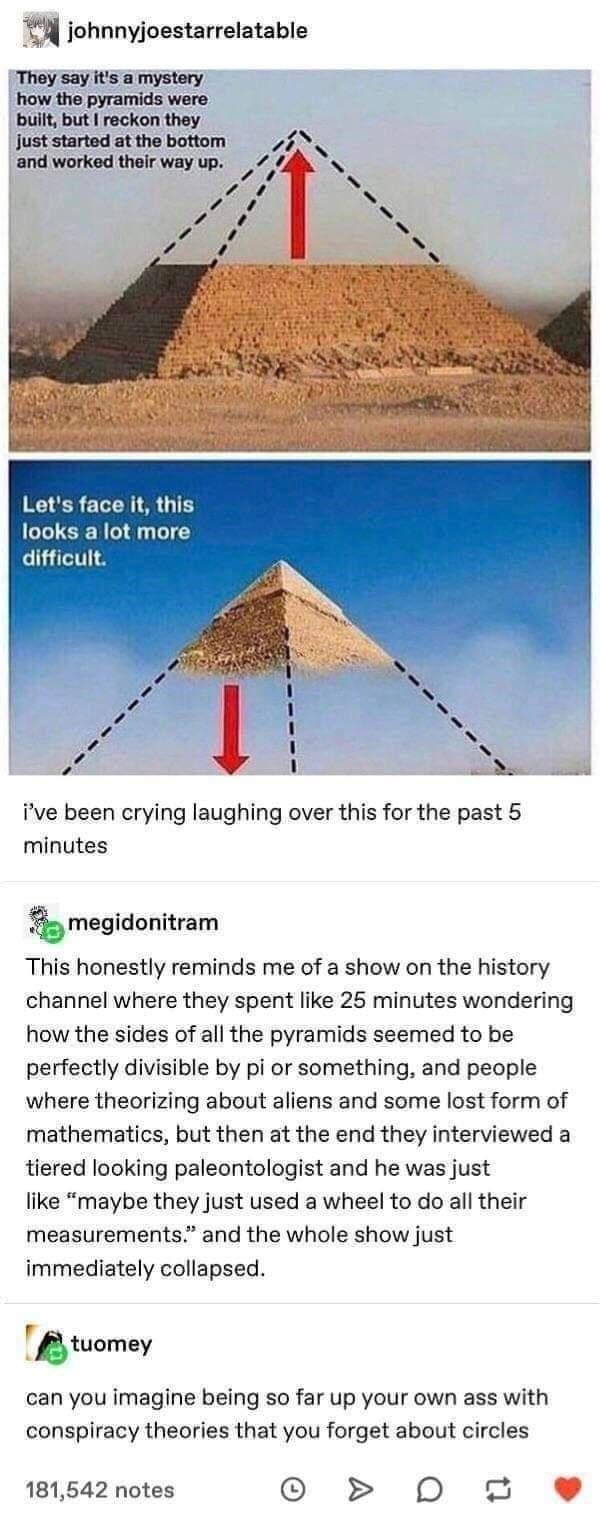this post was submitted on 12 Jan 2024
1235 points (99.1% liked)
tumblr
3418 readers
415 users here now
Welcome to /c/tumblr, a place for all your tumblr screenshots and news.
Our Rules:
-
Keep it civil. We're all people here. Be respectful to one another.
-
No sexism, racism, homophobia, transphobia or any other flavor of bigotry. I should not need to explain this one.
-
Must be tumblr related. This one is kind of a given.
-
Try not to repost anything posted within the past month. Beyond that, go for it. Not everyone is on every site all the time.
-
No unnecessary negativity. Just because you don't like a thing doesn't mean that you need to spend the entire comment section complaining about said thing. Just downvote and move on.
Sister Communities:
-
/c/TenForward@lemmy.world - Star Trek chat, memes and shitposts
-
/c/Memes@lemmy.world - General memes
founded 1 year ago
MODERATORS
you are viewing a single comment's thread
view the rest of the comments
view the rest of the comments

The group that navigated their project is usually left ignored. The main focus on those who dragged these heavy bricks into their places. There were obviously more of them than actual engineers.
Those were farmers who were not working at the time (due to periodic flooding of the Nile or whatever). I believe they paid their taxes in labor instead of grain, which earned them more money on their harvest. They benefitted from free food and the pharaoh had fewer people milling around with nothing to do (potential revolutionaries).
They weren't slaves, they were just normal farmers paying their taxes. They could probably just leave if they had to. I seem to remember we have records of their attendance. Some people were not present and the reason is like "drunk" or something.
They weren't just "dragging heavy bricks" though. They had pulley systems and used many techniques such as boats, sleighs or logs lubricated by animal fat to transport the stones. Obviously still hard work but far from the depiction we see in the media with people being whipped while pushing giant stones uphill.
Yeah, they used a lot of things that we use today in a more advanced form.
It's just these cartoons are historically incorrect, but they give highschoolers a great inspiration to pray for OSHA and 8\5 day rather than praying for the pharaoh and his last apartments.
It seems like a good result.